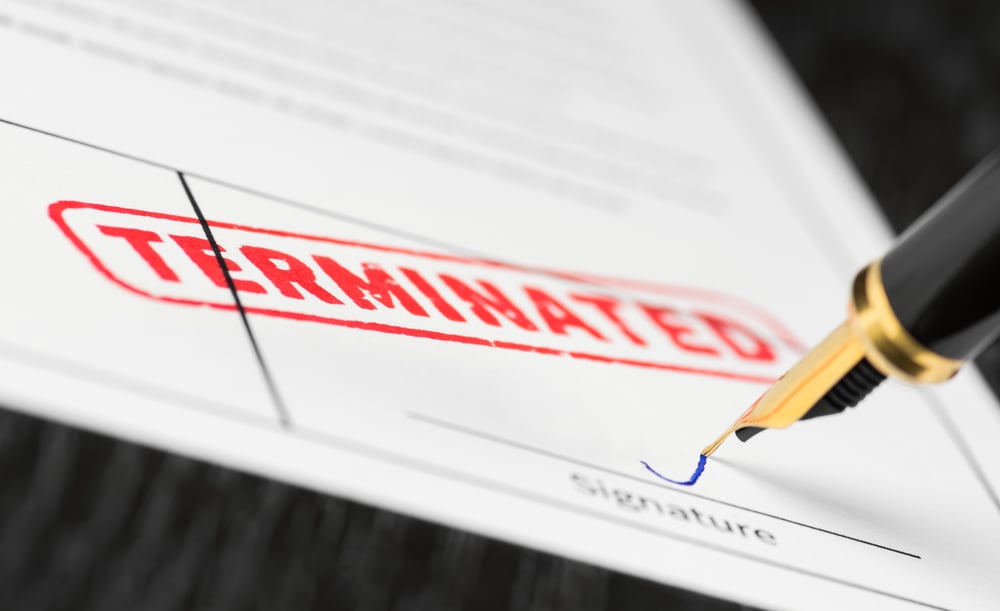Once in a while, 99.co picks a piece of property jargon to demystify. Today we look at the Tenancy Agreement (TA).
What is a Tenancy Agreement (TA)?
A tenancy agreement is the contract between the landlord and tenant, regarding the lease of the property. It’s a legal document that states the rights and responsibilities of both parties, as well as any potential repercussions for violations.
It’s important to note that, in Singapore, the TA is not as standardised as in some other countries. There is a template document from the Council of Estate Agencies (CEA) here, but it is not mandatory to use it. (We suspect this may change in the future, but at the time of writing, it’s still possible to draft another TA to use).
As such, it’s possible to come across TAs with unusual term. There are TAs that ban the consumption or preparation of certain food types, for example, and TAs that ban certain home activities (e.g. running any “from home” business, or mining Bitcoin).
Prospective tenants should never make assumptions about the TA, and must read the details closely.

What is in the TA?
A tenancy agreement will usually include the following:
- The details of the tenants and landlords.
- Tenant’s covenants: these are the tenant’s promises, like paying rent, keeping the house clean, not illegally subletting the unit, etc.
- Landlord’s covenants: these are the landlord’s promises, like not entering the unit without the tenant’s permission, maintaining the structural condition of the unit, paying back the security deposit at the end of the lease, etc.
- How the utilities will be paid (power, water, wi-fi, etc.) The tenant usually pays for these bills in Singapore.
- Liability for repairs. The most common arrangement is that the tenant is liable for up to a certain amount (usually S$150 to S$300), while the landlord must cover the rest.
- Details on when and how the rent is to be paid.
- Termination clauses for the lease, such as the diplomatic clause (see below), or any other circumstances that lets a tenant break the lease.
Again, remember that TAs are not all the same, so you will see some variations. Even if you’ve rented a house before, never assume the conditions are all the same.
For landlords, you can get the help of a property agent or lawyer if you want to add an extra clause to the TA. But if you do this, be sure to highlight the extra clause to your prospective tenants. This will prevent misunderstandings later.
HDB flats for rent

2
1

1
1

2
2

1
1

2
1

1
1

1
2

2
2

1
1

1
1

1
1

1
1

1
1

1
1

2
1

1
1

1
1

2
2

2
1

1
1

2
1

1
1

1
1

1
1

1
1

1
1

1
1

1
1

1
1

1
1

1
1

1
1

2
2

2
2

1
1
See all 2-room >

2
2

2
1

2
2

2
1

2
2

3
2

2
2

2
1

2
1

2
2

2
2

2
2

1
1

2
2

2
2

2
1

2
2

2
2

2
1

3
2

2
1

1
1

2
2

1
1

2
1

1
2

2
2

2
1

2
2

2
2

1
2

2
2

2
2

3
2

2
1
See all 3-room >

3
2

3
2

3
2

3
2

3
2

3
2

3
2

3
2

3
2

2
2

3
2

2
2

3
2

3
2

3
1

3
2

3
2

3
2

3
2

3
2

3
2

2
2

2
2

3
2

3
2

3
2

3
2

3
2

3
2

3
2

2
2

2
2

3
2

3
2

3
1
See all 4-room >

4
2

3
2

3
2

3
3

3
2

3
2

4
2

3
2

3
2

3
2

3
2

3
2

3
2

3
2

3
2

3
2

3
2

3
2

3
1

3
2

3
2

3
2

3
2

3
2

1
1

3
2

5
3

3
2

3
2

4
2

3
2

3
2

3
2

1
1

3
2
See all 5-room >

3
2

3
2

3
3

4
2

3
2

4
2

4
2

4
3

4
3

4
2

4
2

4
2

4
2

3
3

2
1

1
1

4
2

3
1

4
3

3
2

3
3

4
2

3
3

4
2

3
2

3
2

3
3

3
2

3
2

4
2

4
2

3
2

3
3

4
2

4
2
See all Executive >
Here are some of the clauses to watch out for:
The “Exclusive Possession” clause
This is an important term that shouldn’t be missing from the TA. It typically says the tenant can “enjoy the premises without any interruption by the Landlord”.
Under this clause, tenants have the right to refuse entry of the premises to others, as if they were the owner. In fact, they can even refuse entry to the landlord. So if the landlord wants to enter the house for any reason, such as to do renovations or conduct viewings, they need the permission of the tenant to do so.

The “Fair Wear and Tear” clause
Tenants are obligated to keep the house (and any inventory) in good condition. However, the “fair wear and tear” clause means they are not liable for damages caused by aging, and reasonable use. The landlord also can’t retain part of the security deposit to pay for this sort of damage.
For example, if the kitchen sink pipe bursts because it’s 20 years old, the tenant isn’t liable or that. But if the pipe burst because it got clogged, and the tenant tried to take it apart to do a DIY repair, then they’re liable for the damage.
The definition of fair wear and tear is a bit loose, but common sense applies. For example, the landlord can’t make the tenant repaint the entire condo because the paint in some areas peeled.

The diplomatic clause
The diplomatic clause is important to foreigners. It lets them break the lease without incurring penalties, in the event that they can no longer reside in Singapore (e.g. retrenchment, a new posting, dropping out of university).
With this clause, tenants only need to give two months’ advance if they need to break the lease. However, most tenancy agreements will state that the clause only applies to tenants who have stayed for at least 12 months.
Condos for rent

1
1

1
1

1
1

1
1

1
1

1
1

1
1

1
1

1
1

1
1

1
1

1
1

1
1

1
1

1
1

1
1

1
1

1
1

1
1

1
1

1
1

0
1

1
1

1
1

1
1

1
1

1
1

0
1

1
1

1
1

1
1

1
1

1
1

1
1

0
1
See all Studio and 1-bedroom >

2
1

2
2

2
2

2
2

2
2

2
2

2
3

2
2

2
2

2
2

2
1

2
2

2
2

2
2

2
2

2
2

2
2

2
2

2
2

2
2

2
2

2
1

2
2

2
2

2
2

2
2

2
2

2
2

2
2

2
2

2
2

2
2

2
1

2
1

2
2
See all 2-bedroom >

3
2

3
3

3
4

3
5

3
4

3
3

3
4

3
3

3
4

3
4

3
3

3
3

3
3

3
3

3
3

3
2

3
3

3
3

3
3

3
2

3
3

3
2

3
3

3
2

3
3

3
2

3
2

3
3

3
3

3
3

3
3

3
3

3
3

3
3

3
4
See all 3-bedroom >

4
3

4
2

4
4

4
4

4
3

4
3

4
4

4
4

4
5

4
4

4
4

4
3

4
4

4
4

4
4

4
4

4
5

4
4

4
5

4
3

4
5

4
4

4
2

4
3

4
3

4
5

4
4

4
4

4
3

4
5

4
2

4
2

4
4

4
2

4
4
See all 4-bedroom >

5
7

5
5

6
4

5
4

6
7

5
5

5
5

5
7

6
7

5
5

5
3

5
5

5
4

5
7

5
6

5
3

5
4

6
5

6
6

6
6

5
3

5
5

5
5

5
4

5
5

5
5

5
3

5
4

5
6

5
6

5
6

6
3

5
7

5
4

5
5
See all 5-bedroom and larger >
The “Right of Re-entry” clause
This effectively allows a landlord to terminate the lease, when a tenant violates some of the rules. The most common reason is late or unpaid rent. The TA should state how and when this may happen (e.g. if rent is not paid within 21 days of the due date).

Be on the lookout for tenancy agreements that contain strange or missing terms here. For example, if the TA says the landlord can take over the property again when you don’t pay rent (without giving any timeline), you could be evicted just for being a day late.
What bits of property jargon confuse you? Let us know in the comments section below.
If you found this article helpful, check out Tenancy agreement and security deposit in Singapore: What renters must know and Guide to breaking lease and early termination of tenancy agreement in Singapore.
The post Tenancy Agreement (TA) appeared first on .


